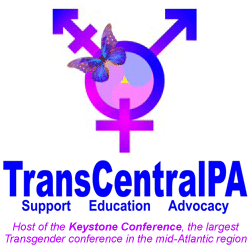Fuzzy Meanings and Transgender Politics
Chip Morningstar, inventor of the avatar, once said that all technical arguments are ultimately about the meanings of terminology. I think this applies to political arguments too.
Much of the controversy in transgender politics flows from an ambiguity in meaning of the word “transgender,” People become angry, even vicious over misunderstandings of this word.
The definition of transgender has changed multiple times since we started using the word in the 1970s. Right now, there are two widely invoked meanings. 1) a euphemism for transsexual, and 2) an umbrella term for all gender-variant people.
Things were simpler in the old days — the community was roughly divided into transvestites (TV), transsexuals (TS), drag queens (DQ), & FtMs. The term “transgender community” meant “all of the above.” Transsexuals were defined as those who undertook medical treatment and made a permanent switch of public gender identity. (In this article, I will keep using the term TS to designate this narrower class, and use the term GC (or gender community) to designate the umbrella term).
After TV and TS acquired sexual connotations, both groups have tried to rename their categories to something more neutral. Transvestites are now crossdressers, and transsexuals appropriated the word transgender for the same reasons.
So we have a word that changes meaning in context. One meaning describes a subset of the other meaning. People with deep knowledge of our community can usually tell which. It isn’t easy, because some TS people try to exclude the rest of the GC and really want the word transgender to only apply to them.
For the larger world, it is a hotbed of confusion. Two recent examples are the controversy about erotic motivations and the controversy over medical treatment of gender non-conforming children.
Erotic motivations are important for many in the gender community. Female-to-male people are very sexual, as are many drag queens and crossdressers. Some transsexuals are, yet others are not, to the point becoming angry when viewed in the erotic frame. Using the umbrella term when talking about sexuality blunders into this mine field. So does using the word transsexual, for the same reasons.
With children, the problem is that many of the younger children who express an interest in becoming the opposite sex do not go on to becoming TS. They become gay or lesbian, or a crossdresser, or leave things as they are. You want them to sort things out before making permanent changes.
If a child is TS (meaning destined to medically and socially transition), then having to wait is just more torture. The devil lies in figuring out which ones are TS.
If you claim a child that is transgender (using the TS meaning) in conversation with someone who thinks the word transgender means the broader gender community, it sounds like you are recommending something dangerous without thinking it through.
Some activists attack the “80% desistance rate” claim arguing that the studies used a looser inclusion criteria. Obviously a scheme that reliably determines which children will become TS should have a 0% desistance rate. While this may be possible with the “gender affirming” treatments now in fashion, it is too early to know for sure. Until then, the war will wage.
Editor’s Note: TGForum maintains the stance that the word “transgender” is an umbrella term that covers any gender shifting, full or part time, or people of any non-binary identification.
Category: Transgender Opinion











Good point, Nadia.
I also believe in the Soul but there is no ‘hard’ evidence for such a concept – it’s a matter of faith for us. (For myself, the near-death experience reports convince me of the reality of the afterlife but those are hearsay and aren’t scientific).
The brain, however, is definitely real – there it is up there! – and there are obvious male/female physiological differences that are expressed in masculine/feminine thoughts and behaviors. 🙂
Good article, Jamie.
“Things were simpler in the old days…”
Yes, indeed, and things were described more accurately. But I think that’s the goal of mixing terminology up.
“After TV and TS acquired sexual connotations…”.
Well, both are still perfectly good – and descriptive – words. If gender and sex are two different things then ‘transsexual’ is the accurate word since those who say they are born in the wrong body are not crossing the gender line; they want to cross the sex line.
Rule of thumb to differentiate transvestites from transsexuals: if the boy in question enters puberty and finds girls’/women’s clothing intensely erotic/arousing then he is a fetishist and a transvestite.
Not that there’s anything wrong with that. 🙂
Transvestites/crossdressers do not claim to have been born in the wrong body, to have a female soul. TS’s absolutely make that claim, as does Jazz Jennings when she says, as a 7 year old, that she has a ‘girl brain’ and a ‘boy body’.
Hmmm, isn’t the feminist dogma that there is no such thing as a female or male brain? Poor Jazz, so politically incorrect. But she’ll learn when she gets to college in a few years.
Regarding male vs. female brains: I really prefer to say that I have a female SOUL. Saying “female brain” instead of “female soul” is just a crutch to get the point across to those who don’t believe in souls.